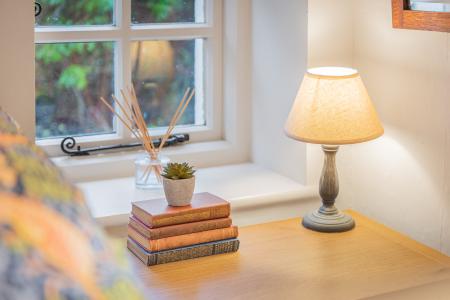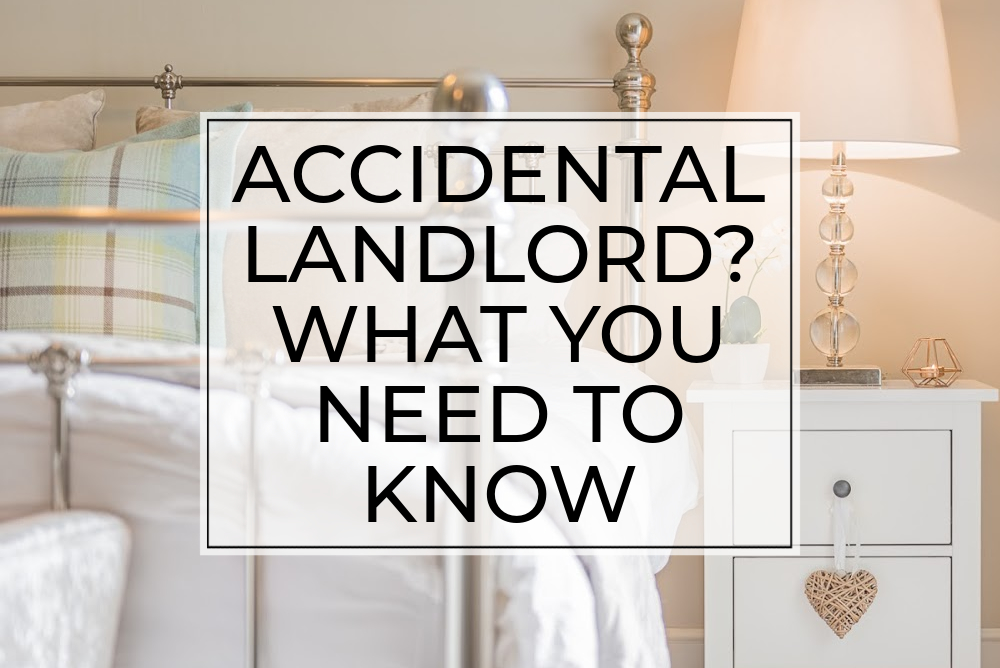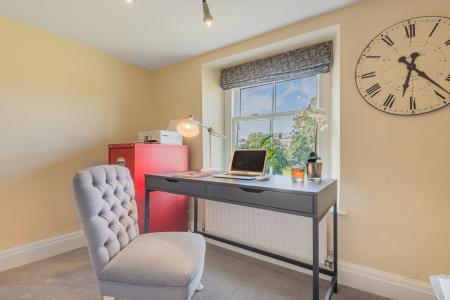Accidental landlord? What you need to know
Some people are landlords because they’ve made a deliberate decision to buy property and rent it out. They’re part of the buy-to-let crowd, who’ve chosen to use property as an investment vehicle to grow their wealth.
However, there’s another group of landlords that more and more people are joining: those who’ve ended up letting property because of circumstance, rather than any pre-planned strategy. These people are known as ‘accidental landlords’.
So, is that you? Have you found yourself with a ‘spare’ property that you don’t want or need to live in? Perhaps you’ve:
- inherited someone else’s property
- moved in with your partner
- temporarily relocated for work
- moved house but not been able to sell your previous home…
Whatever the reason, if you’ve now got a property you want to rent out, it could prove a great investment for you, but there are a number of important things to know and consider before you think about moving a tenant in!
Why do you want to be a landlord?
With any new venture, the first thing is to be clear on your objectives, so take some time to really think about why you want to let this property, rather than sell it, and what you want to get out of it. Ask yourself questions like:
- How long do you want to let it for?
- Do you plan to move back into it yourself at some point?
- Have you got money to invest in getting it ready to rent?
- What are your investment priorities: monthly income or capital growth?
- What kind of tenant would you prefer?
- Do you want to manage it yourself or have an agent look after it for you?
Once you’ve got a fuller picture of what’s involved in being a landlord, you can make more detailed short, medium and long-term plans, but the basic questions above will give you somewhere to start when you’re talking to agents, financial advisers, etc.

Lettings rules and regulations
The next important thing to understand is that there are a huge number of very specific rules around letting property and being a landlord. Some are to do with the property itself, the type of let and the standard of accommodation you’re providing; some are about the rights and responsibilities of landlords and tenants; but there’s a great deal to know and understand to make sure you stay on the right side of the law.
It’s also important that you understand the contract with your tenant. If you’ve never rented a property yourself, you might not be familiar with the terms of a tenancy agreement and what you as the landlord can and can’t do while your tenant’s living in the property. In particular, if you’ve got an emotional attachment to a former home, make sure you’re happy to accept the tenant’s rights because, once you’ve agreed a let, it’s not necessarily a simple process to get the tenant out if you change your mind!
We’d suggest you work with an experienced letting agent, who’s been professionally trained and knows the business inside out, so can give you the best advice on how to ensure you let legally and successfully. We can guide you through what you need to do yourself and also take a lot of the responsibility and administration off your shoulders, saving you time and money.
Call us on 01364 652652 at any time if you’d like some help with your plans, and we can talk though our different letting and management options.
Check the mortgage
If there’s a mortgage on a property that was previously a main home for you or someone else, you need to get in touch with the lender.
In normal circumstances, a property with a standard residential mortgage can’t be rented out – you need to have a specialist buy-to-let product. This is because letting is considered higher risk by lenders than someone living in their own home, and the criteria for lending are different, so you may need to make a new mortgage application.
The exception is if it’s a sudden or temporary change in situation – for example, if your sale fell though at the last minute but you’ve moved on yourself and now need to let your previous home until it sells. In that case, you’ll still need to discuss it with your lender, but they might give you permission to let under your current mortgage, although probably with a higher interest rate applied.

Potential returns
As an accidental landlord, you might not have come across the concept of returns from property, but it’s important to know how to calculate your potential profits and return on investment so you can choose the letting and management strategy that’s going to work best for you.
In simple terms:
- Profit = rental income less costs (e.g. mortgage, maintenance, bills) – and you should calculate this on a monthly and annual basis. For a more ‘complete’ profit figure, you can also take into account any capital growth.
- Return on investment = profit divided by your investment into the property (any deposit you’ve had to put down, refurbishment costs, etc.) – this is expressed as a percentage.
You can do some research into the kind of rents you could charge for different types of lets and put together estimates for how much you’re going to have to spend – both up front and ongoing (see next section). Then use those figures to compare the likely profits and returns for different letting options.
You can also use your figures to compare property with other types of investment, so you can see how well it could work for you!
Your decision on how you let your property and the type of tenant you take will depend on how and when you want to see financial returns, combined with the time, effort and money you’re willing and able to spend on the property.
As a general rule, student lets and other types of HMO (House in Multiple Occupation) take more effort and cost more to run, but the monthly rental profit tends to be high, so they can work well if that’s your priority. On the other hand, letting a whole property to a family or a couple often means relatively low ongoing costs and less administration – the compromise being a lower monthly rental profit. However, you may be able to balance that with better capital growth over time, if you’re happy to wait a bit longer for your gains.
To get a true picture of your net return and profit, you’ll also need to factor inflation and tax into your calculations. The financials can take some time to understand, but once you have a system for tracking how well the property’s doing for you, you’ll be able to see where you can make adjustments over time so it runs even more efficiently and profitably.
It’s worth speaking to an independent financial adviser who’s used to working with landlords and can help you get to grips with the basics. As property tax is a very specialist area, they may also recommend you take separate tax advice.

Refurbishment and maintenance costs
Your initial and ongoing costs will affect how profitable your rental is, so it’s important to have an idea of what they’re likely to be.
The various health and safety rules around letting property mean you’ll almost certainly have to spend some money getting the property legally ready to rent. That could be as simple as installing smoke alarms and carbon monoxide detectors and getting the required gas and electrical checks. However, if you’re thinking about student letting and HMOs, the regulations are tighter, and you’ll have to invest more in things like fire safety measures (fire doors, extinguishers, etc.). You’ll also have to check with your local council about local building regulations and licensing requirements.
If the property hasn’t been refurbished for a while, you might need to invest in upgrading the fittings and décor. The level of finish required will depend on the type of tenant and let – that’s something an agent will be happy to help you with. Then you also need to put together a budget for repairs and maintenance going forward.
In our experience, the better a property is fitted out and presented, the more rent you can usually charge. It’s also more likely you’ll attract a good tenant who looks after the property and stays longer, meaning lower ongoing maintenance costs and regular monthly rental income without void periods.
While there is a great deal to get to grips with – particularly if you’ve only recently found yourself in the position of being an accidental landlord – the good news is that there are plenty of people who can help, advise and guide you so that you could make a real success of letting.
We’re always happy to chat to accidental landlords, whatever stage you’re at. So, whether you’re still considering letting a property and would like some more advice on your options, or you’re ready to move ahead and just have a few questions about putting your plan into action, you can contact us any time. Call us on 01364 652652 or email sawdyeandharris@gmail.com, and one of the team will be in touch.







